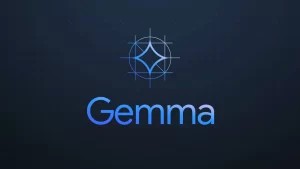SAN FRANCISCO — AI research and safety company Anthropic today unveiled Citations, a new feature for its Claude models that aims to increase trust and accountability in AI-generated responses. Rolling out across the Anthropic API and Google Cloud’s Vertex AI, Citations provides detailed references to the source material used in answering user queries.
A More Verifiable AI
Citations allows Claude to automatically ground responses in user-provided documents. Instead of relying on complex prompt-engineering strategies to include source details, developers can simply supply relevant documents, and Claude will link its claims back to the exact sentences and passages from those documents. According to Anthropic’s internal testing, this method increases recall accuracy by up to 15% compared to custom or prompt-based approaches.
“We see Citations as the next step in building trust by verification,” Anthropic states in its press announcement. “While our Claude models are already trained for reliability and steerability, the new Citations feature addresses the important need for verifiable sources behind AI-generated content.”
How Citations Works
When users enable Citations, the API processes user-provided documents (e.g., PDFs and text files) by breaking them down into discrete chunks—often sentence by sentence. These chunks are passed along with the user’s prompt into Claude. The model then references these exact segments in its response wherever it relies on that information.
Anthropic highlights that this approach:
- Requires no file storage – Documents are sent directly in context with the query.
- Prevents hallucinations – With each key point tied to a verified source.
- Minimizes additional overhead – It forgoes the need for intricate prompt engineering solutions.
Pricing remains the same token-based model currently used by Anthropic, although more input tokens may be consumed. However, users will not be charged for the tokens representing the quoted text in Claude’s output.
Real-World Impact
Several early adopters of Citations shared their experiences:
- Thomson Reuters is using Citations to power their CoCounsel AI platform, which helps legal and tax professionals synthesize expert knowledge.
“For CoCounsel to be trustworthy and immediately useful for practicing attorneys, it needs to cite its work,” says Jake Heller, Head of Product for CoCounsel. “We first built this ourselves, but it was really hard to maintain. Anthropic’s Citations feature makes linking back to primary sources much easier and more reliable. It not only helps minimize hallucination risk but also strengthens trust in AI-generated content.”
- Endex, an Autonomous Agent platform for financial firms, reported a 20% increase in references per response and eliminated 10% of source hallucinations and formatting issues entirely.
“This removed the need for elaborate prompt engineering and improved our accuracy in multi-stage financial research,” notes Tarun Amasa, CEO of Endex.
Use Cases and Availability
Anthropic believes Citations will prove especially valuable in scenarios like:
- Document Summaries: Shortening lengthy files like case documents, with each point referencing its original location.
- Complex Q&A: Tracing detailed answers back to specific sections of financial statements and other large data sets.
- Customer Support: Pulling answers from multiple manuals, FAQs, and tickets, while explicitly citing each referenced passage.
Citations is available now for Claude 3.5 Sonnet and Claude 3.5 Haiku. Developers can consult the official documentation to learn how to integrate Citations into their workflows.
Looking Ahead
With the addition of Citations, Anthropic continues its mission to refine and humanize AI interactions—aiming to reduce the mistrust and uncertainty that can arise from AI-generated content. By offering verifiable, transparent insights, Anthropic is positioning Claude as a tool that developers can rely on for both accuracy and accountability.
In the context of AI, what’s the radical shift here?
The radical shift lies in turning AI from a “black box” that simply provides answers into a verifiable partner that can systematically cite its sources. By automating precise references to the original content, Citations effectively brings transparency and accountability to large language models—an essential move toward building user trust and reducing misinformation.



















